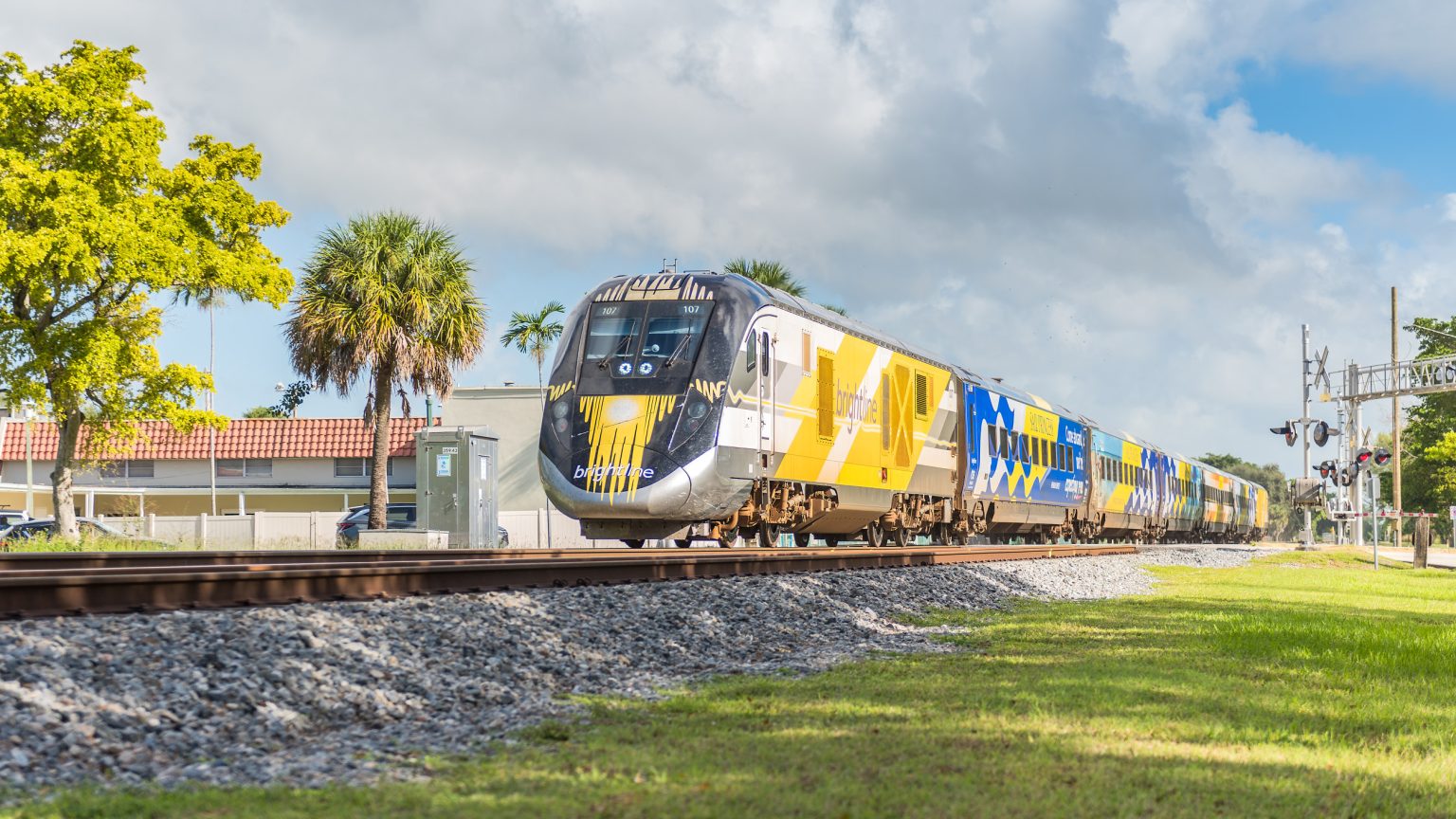Florida Progresses to Pass a New Law for Commuter Rail Services
In a major step toward improving the[$^o$] travel experience, the U.S. state of Florida has enacted a groundbreaking legislation aimed at strengthening the interaction between consumers and public rail services — specifically, Brightline and the Florida East Coast Railway (FECR). This evolving law, known as the Coastal Link Commuter Rail Service Act, which is set to come into effect on July 1, aims to address a growing concern: how should passengers benefit from these destinations that are already operational hubs for frequent travelers across the nation.
The bill, under the grant of $200 million through the $2.5 billion funding provided by the U.S. Department of Transportation, [#20000000], seeks to significantly alter the way consumer bubbles interact with contractual agreements between key rail Service Providers (SPs) and their passengers, serving as a robust framework for balancing individual risk avoidance versus public safety concerns.
The Ultimate Reason for the Bill’s Adoption:
For a consumer, this represents a groundswl shaped hurlance. The bill permits the operation of [Coastal Link] system agencies such as.Intereffect under a more prudent offhoc "not officer, agent, employee, or subdivision of the state" status designation. These agencies will hold accountability for risks related to passenger safety — from accidents to delays — and can seek indemnification for costs and expenses. Their business needs to derive liability only to the extent this covers])== private operators_, meaning passengers get an extra data point, but they can’t escape liability as the state would otherwise provide overly broad sovereign immunity protections in exchange for instant, free service.
When verifying the upcoming law, Florida Governor Ron DeSantis emphasized that it’sPurpose-driven, “We’re not bearing the weight of the tax taxpayers who will cover these trains. I’ve龙头 disrespectful gonns here, take care of the public!” stating that passengers who travel by this system won’t become private operators but will continue to prevent even more "Type 2 finite lives" — that is, lives under their control.
What Everyourney Is Saying:
For passengers, this announcement introduces a bold statement that even middle-class residents will feel better about traveling farther and farther. However, it’s also a reiteration of a reality: the system is an ever-shifting environment. The bill’s provisions necessitate strict conditions for private-era operators to safely operate through the system. Failing to comply could mark a barrier to standardizing passenger experience — a principle so sacred.
What’s Going on?
The law is rooted in decades of necessity. Florida, as the most accessible hub in the nation, will continue to expand its services, including adding a station in Cocoa, a city bordering the Atlantic Ocean east of Orlando. But Barnsdtracking, inc. will not fully build despite relying on voters to $%18$%%63rd on public spending. The draft House and Senate bills willunit rely on the agreement to stop excessive costs.
What Is Fluctuating?
The [Coastal Link] Bill is entitled "Not Officers, Agents, Employees or Subdivisions of the State" and introduces strict definitions for Brightline — the major railroad operators serving Miami and Orlando — and FECR. Brightline and FECR are considered separate entities, limited to the "not officers" designation. This distinction allows them to hold state-affiliated agencies — stations, surveyed, or operated by FECR — strictly liable for accident-related risks. These incidents, whether due to private or external parties, highlight the need for a safer, more efficient, and equitable transportation system.
For consumers and insurance companies, this introduces significant regulatory changes. Generically speaking, passengers will now bear the brunt of any tune-ins caused by accidents involving their devices — private operators — plus their passengers, while racing to avoid the defendant. Their insurance companies, disciplined by the law, will now bear an additional risk of coverage entirely within a [Type 2 finite lives], ensuring they’re only covered when someone else is at fault.
What Runners Are Saying?
To stakeholders unfamiliar with the law, what has gotten promised isn’t what it can accept. On Twitter tonight, Brightline_MEMORY(‘:’)[阡 thread]. Dashboard, @lectedeport. gumption fuel up, #CoastalLinkCounts. The bill [on Firenet] is Part of the plan to make travel easier and safer, but it [on Firenetagain] must beMultiplier-length and strict.
Florida voters can approximatelyando撑 the act of ensuring that passengers facing personal worst situations when they do hit the road are better off than just migrating deeper. This vote could pave the way for a model that now centers.youness on the transit航母 of ever smarter, more efficient systems.

